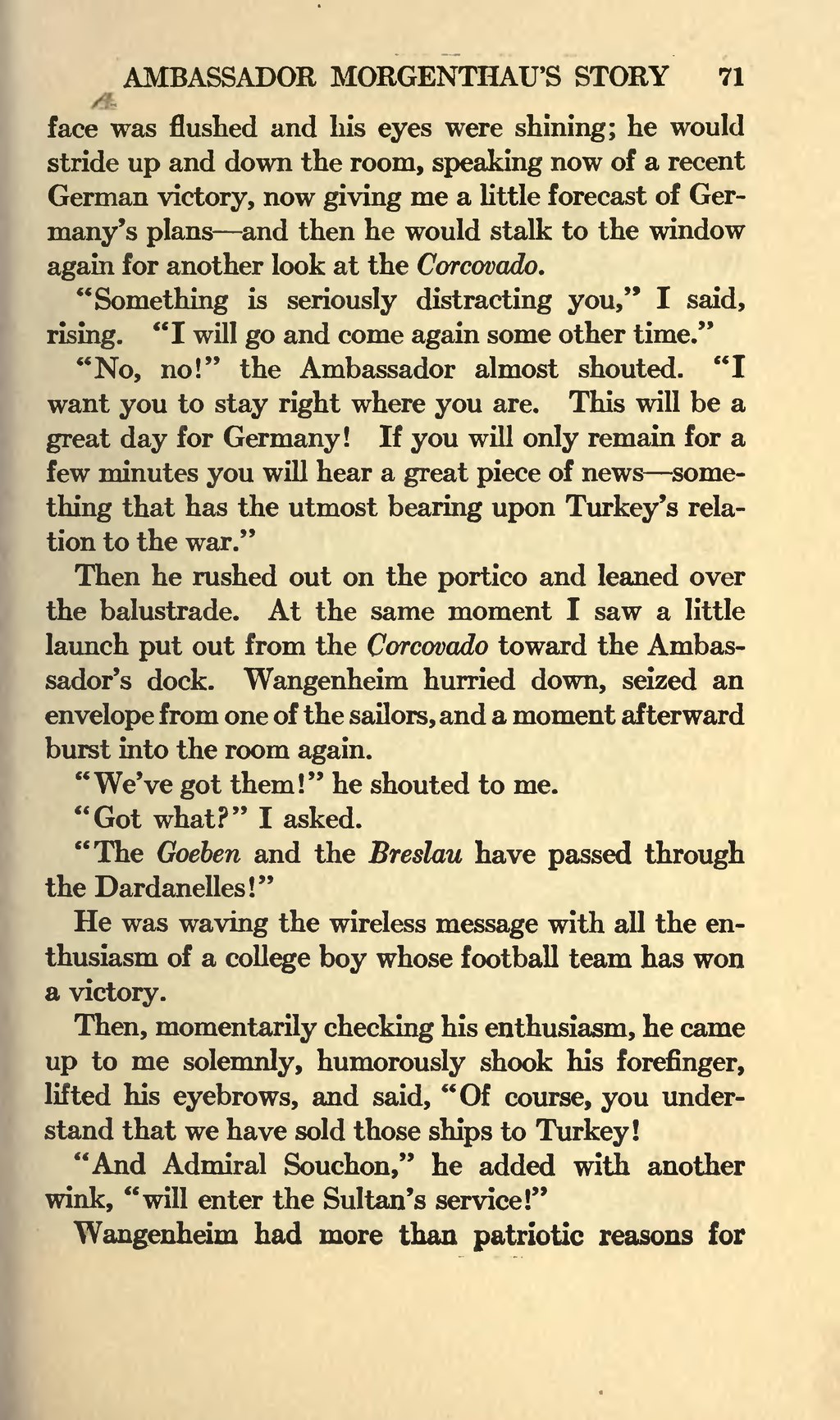face was flushed and his eyes were shining; he would stride up and down the room, speaking now of a recent German victory, now giving me a little forecast of Germany's plans—and then he would stalk to the window again for another look at the Corcovado.
"Something is seriously distracting you," I said, rising. "I will go and come again some other time."
"No, no!" the Ambassador almost shouted. "I want you to stay right where you are. This will be a great day for Germany! If you will only remain for a few minutes you will hear a great piece of news—something that has the utmost bearing upon Turkey's relation to the war."
Then he rushed out on the portico and leaned over the balustrade. At the same moment I saw a little launch put out from the Corcovado toward the Ambassador's dock. Wangenheim hurried down, seized an envelope from one of the sailors, and a moment afterward burst into the room again.
"We've got them!" he shouted to me.
"Got what?" I asked.
"The Goeben and the Breslau have passed through the Dardanelles!"
He was waving the wireless message with all the enthusiasm of a college boy whose football team has won a victory.
Then, momentarily checking his enthusiasm, he came up to me solemnly, humorously shook his forefinger, lifted his eyebrows, and said, "Of course, you understand that we have sold those ships to Turkey!
"And Admiral Souchon," he added with another wink, "will enter the Sultan's service!"
Wangenheim had more than patriotic reasons for

